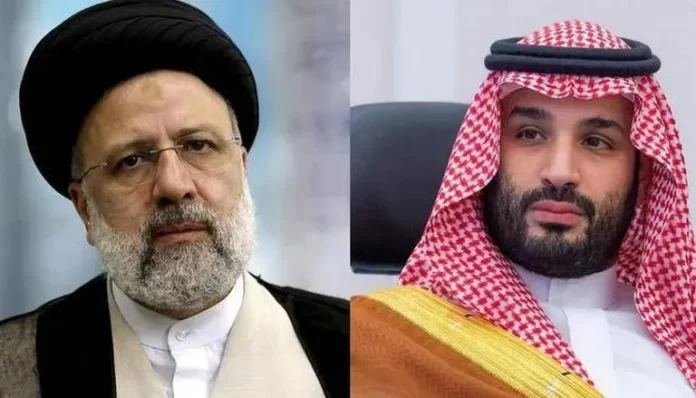Iran’s mission to the United Nations says a breakthrough agreement with Saudi Arabia restoring bilateral relations will help bring a political settlement to Yemen’s yearslong war, Iranian state media reported Sunday.
Iran and Saudi Arabia agreed Friday to reestablish diplomatic relations and reopen their embassies after seven years of tensions that brought the two regional powerhouses to the brink of conflict and fueled tensions across the region.
Soon after exploding in 2014, Yemen’s conflict turned into a proxy war between Saudi Arabia, which led a military coalition backing Yemen’s internationally recognized government, and Iran, which has aided the country’s Houthi rebels.
Iran has long been accused by western governments and U.N. experts of providing weapons to the Houthis. Western militaries have repeatedly intercepted Yemen-bound ships carrying Iranian weapons in the Red Sea. Tehran has denied the accusations of arming the Houthis.
China mediated the major diplomatic breakthrough between Tehran and Riyadh, which it is widely believed decreases the likelihood of armed conflict between the regional rivals, both directly and in proxy conflicts.
Citing a statement from Iran’s U.N. mission, IRNA news agency said the deal with Saudi Arabia would accelerate efforts to renew an expired cease-fire deal, “help start a national dialogue, and form an inclusive national government in Yemen.”
The month cease-fire, the longest of the Yemen conflict, expired in October. Both sides, however, refrained from taking serious escalatory actions that could cause fighting to flare-up, as negotiations were underway between the Houthis and Saudi Arabia to renew the agreement.
The Houthis appeared to welcome the deal, slamming at the same time the U.S. and Israel, Iran’s top foes.
“The region needs the return of normal relations between its countries, through which the Islamic society can regain its lost security as a result of the foreign interventions, led by the Zionists and Americans,” said Mohamed Abdulsalam, the rebels’ spokesperson and chief negotiator.
The Saudi-backed Yemeni government issued a carefully crafted statement on the deal, expressing some optimism — and caveats.
“The Yemeni government’s position depends on actions and practices not words and claims,” it said, adding it would proceed cautiously “until observing a true change in (Iranian) behavior.”
Abdel-Bari Taher, a Yemeni political commentator and former Journalists’ Union head, called the Saudi Arabia-Iran deal a “positive first step.” He urged both Tehran and Riyadh to further pressure their allies in Yemen to end the conflict and ease tensions elsewhere in the region.
“They should pressure their allies to engage positively in the U.N. efforts to relaunch political talks between Yemenis,” he said. “Yemen is a hot and sensitive spot in the regional rivalry. If it is solved, it would ease tensions in other areas in the region.”
Rights groups say Yemen’s war has unleashed one of the world’s worst humanitarian crises and pushed millions of people to the brink of famine.













